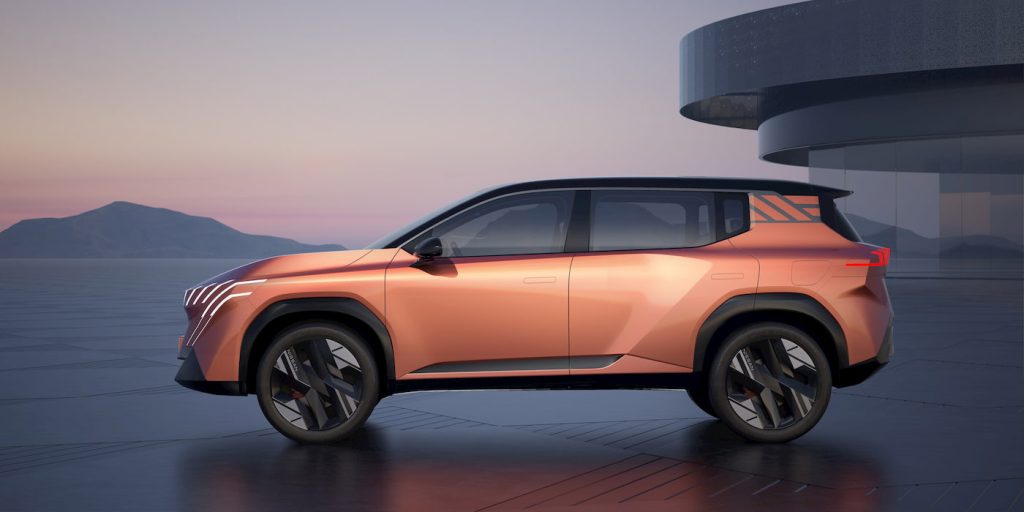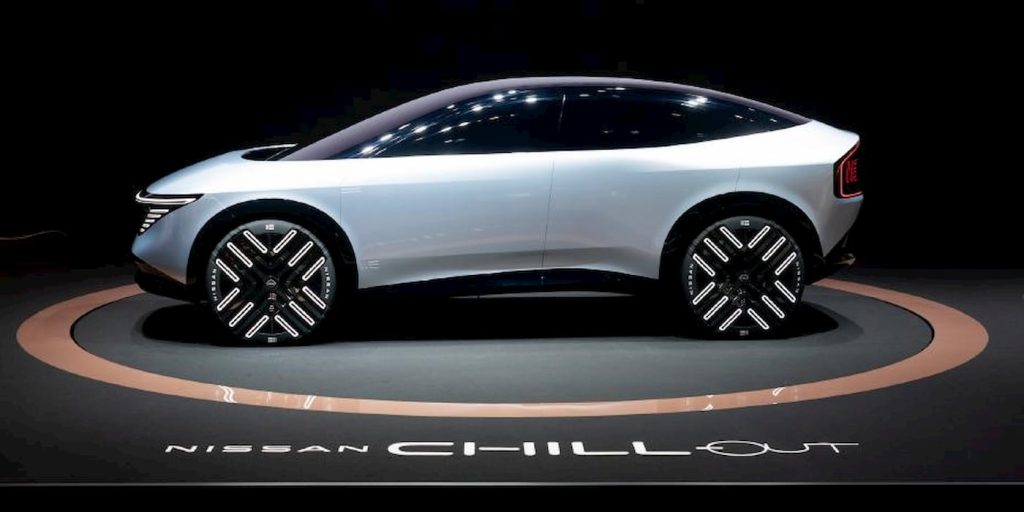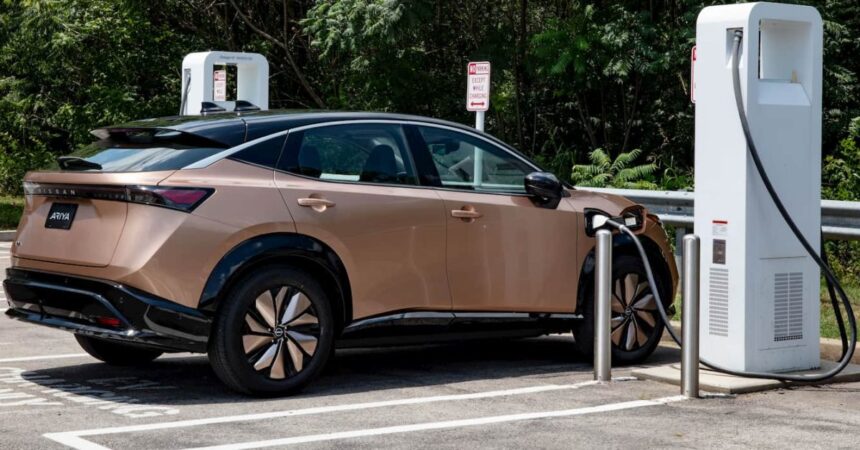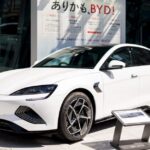While several Japanese automakers have recently collaborated on the development of new internal combustion engines (ICE), Nissan remains committed to its stance. Nissan has announced that it will no longer invest in the development of new petrol and diesel engine models, instead focusing its efforts on electrifying its vehicle lineup as part of a shift towards an electrically powered future.
Although Nissan was initially considered a pioneer in the electric vehicle (EV) revolution, it has recently lost momentum.
Who could possibly ignore the legendary status of Nissan’s pioneering electric hatchback? Nissan unveiled the LEAF in 2010, marking a milestone as the world’s first mass-produced electric vehicle. Until Tesla’s Model 3 took the lead in early 2020, the LEAF remained the top-selling electric car globally.
More than a decade after its initial foray into electric vehicles, Nissan unveiled its second globally available EV model and its inaugural all-electric SUV, the Nissan Ariya.
Although the Ariya’s launch was initially slow, Nissan’s “Smart Factory” is now operating smoothly. Nissan unveiled its innovative Clever Manufacturing unit line at its Tochigi facility in 2021, aiming to significantly reduce costs and accelerate electric vehicle production capabilities.
Nissan’s fortunes are buoyed by a surge in demand for its electric crossover, the Ariya, as LEAF sales continue to slump across key markets. By mid-April 2024, Nissan had sold 11,428 Ariya units in major markets: 5,640 in the United States, 5,187 in Europe, and 601 in Japan.
Nissan clarifies that investment in internal combustion engines (ICEs) is no longer a priority for the company’s long-term strategy.
Despite its Japanese peers, including Toyota, Mazda, and Subaru, focusing on developing more environmentally friendly next-generation internal combustion engines, Nissan continues to prioritize a shift towards an all-electric future.
Nissan’s commitment to electrification gains momentum as it confirms its strategy to transition to an all-electric lineup in Europe by 2030, effectively eliminating investment in internal combustion engines (ICE) moving forward.

At Nissan’s Sunderland manufacturing facility, Francois Bailly, senior vice president and chief planning officer for Africa, Middle East, India, Europe, and Oceania, stated to the press, “Our future is electric.”
“E-Energy serves as the foundation for our journey forward, with each market progressing at its unique pace,” Bailly explained, emphasizing, “We’re not allocating resources to develop new internal combustion engine powertrains; that’s a definitive stance.”
As Nissan prepares to unleash a surge of cutting-edge electric models, including its highly anticipated next-generation LEAF EV.

Nissan has revealed ambitious new targets for its electric vehicle strategy, aiming to have electrified cars make up 60% of total sales by the end of the decade. Across the United States, Nissan is undergoing a significant revamp by introducing all-new e-POWER and plug-in hybrid electric vehicle (PHEV) models to an impressive 78% of its lineup.
Across Europe, Nissan is set to introduce six new electric vehicle models, with the ambitious goal of securing a 40% market share in electric automotive sales by 2026. Nissan anticipates significant price reductions for its forthcoming electric vehicle lineup, with anticipated cuts reaching up to 30% due to newly implemented efficiency enhancements.
Electrek’s Take
Japanese manufacturers have proven to be some of the most hesitant adopters in adapting to the industry’s shift towards all-electric vehicles. Nissan bucks the trend by forgoing a new internal combustion engine (ICE), as rivals Toyota, Mazda, and Subaru prepare to unveil their latest offerings.
By taking a bold stance, Nissan appears poised to amplify its competitive edge in the near future? Meanwhile, Toyota and its Japanese competitors are experiencing a step back.
Toyota’s electric vehicle (EV) gross sales account for a mere 1% of its overall volume this year. Tesla’s electric vehicles are far outpacing the competition, boasting a significant market share with hundreds of thousands of units sold worldwide.
As other manufacturers invest in innovative electric vehicles, Toyota, Mazda, and Subaru find themselves lagging further behind.
What do you guys assume? Will a unique blend of European flair and innovative engineering enable Nissan to carve out a distinct identity among its Japanese peers? Tell us your ideas within the feedback under.











